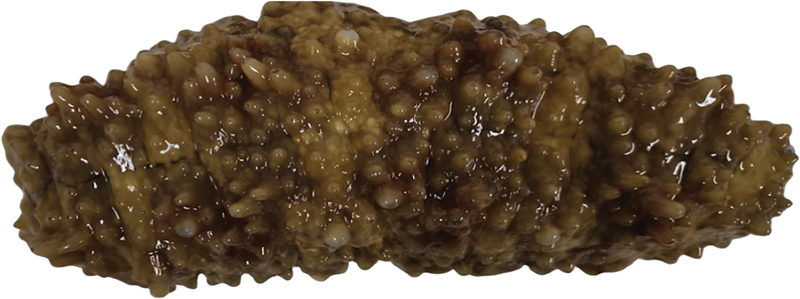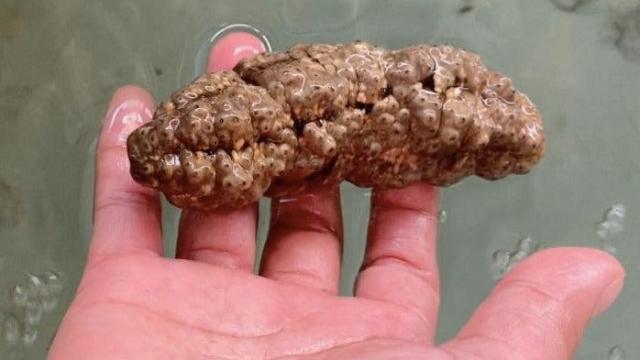Great things can come in small, slightly repulsive packages. Scientists in the Philippines have detailed the molecular secrets of Stichopus cf. horrens, a sea cucumber species that bears more than a passing resemblance to something else. Their findings indicate that these animals contain several compounds that could have potential medical benefits in humans, including anti-cancer agents.
S. horrens is a sea cucumber native to Southeast Asia that’s well known to marine researchers and locals for its unique characteristics. These invertebrates will quickly shed off their external surface when touched by something as a defense mechanism, for instance. Like other sea cucumbers, they’re also highly prized and sold in some countries as either food or traditional medicine.
Despite their popularity, these sea cucumbers haven’t been studied as closely as other species, particularly when it comes to their metabolomics—the sum total of an animal’s chemical makeup, including its metabolic byproducts. Study author Eizadora Yu and her colleagues teamed up with other researchers at the Marine Science Institute, a part of the University of the Philippines, to do just that.
“What we did in this study is to identify as many compounds found in the body wall and viscera (internal organs) of S. horrens. It is a baseline analysis of the S. horrens metabolome,” Yu told Gizmodo in an email. “What we found is that S. horrens contains a lot of bioactive compounds that have been previously reported by other researchers.”

Some of these reported compounds are thought to have anti-cancer activity; others might be able to stimulate the growth of neurites (the projections that extend from a neuron and help it communicate with other brain cells). The team also discovered plenty of previously undocumented compounds that could have all sorts of uses.
The findings, published Wednesday in the journal PLOS-One, don’t mean that people should rush out to stockpile loads of S. horrens to treat their cancer. Even if these compounds do legitimately have anti-cancer properties, there are many chemicals out there that can kill cancer cells in a test tube but are eventually known to be too ineffective or dangerous to use in humans.
But this research does mean that scientists can now start to extract and purify these compounds from S. horrens to study them and find out for sure, Yu says. Some of the team’s authors have already been working on ways to grow these cucumbers outside of the wild, which should ensure a sustainable supply of them for future research. Other researchers on her team are beginning to study compounds that might not have any practical applications for humans but could explain how the cucumber defends itself from predators.
“We are currently studying how traditional processing methods (drying, boiling, etc) will affect the metabolome of S. horrens, and we would also like to perform metabolomics on other sea cucumber species to support national blue economy initiatives,” Yu said.
